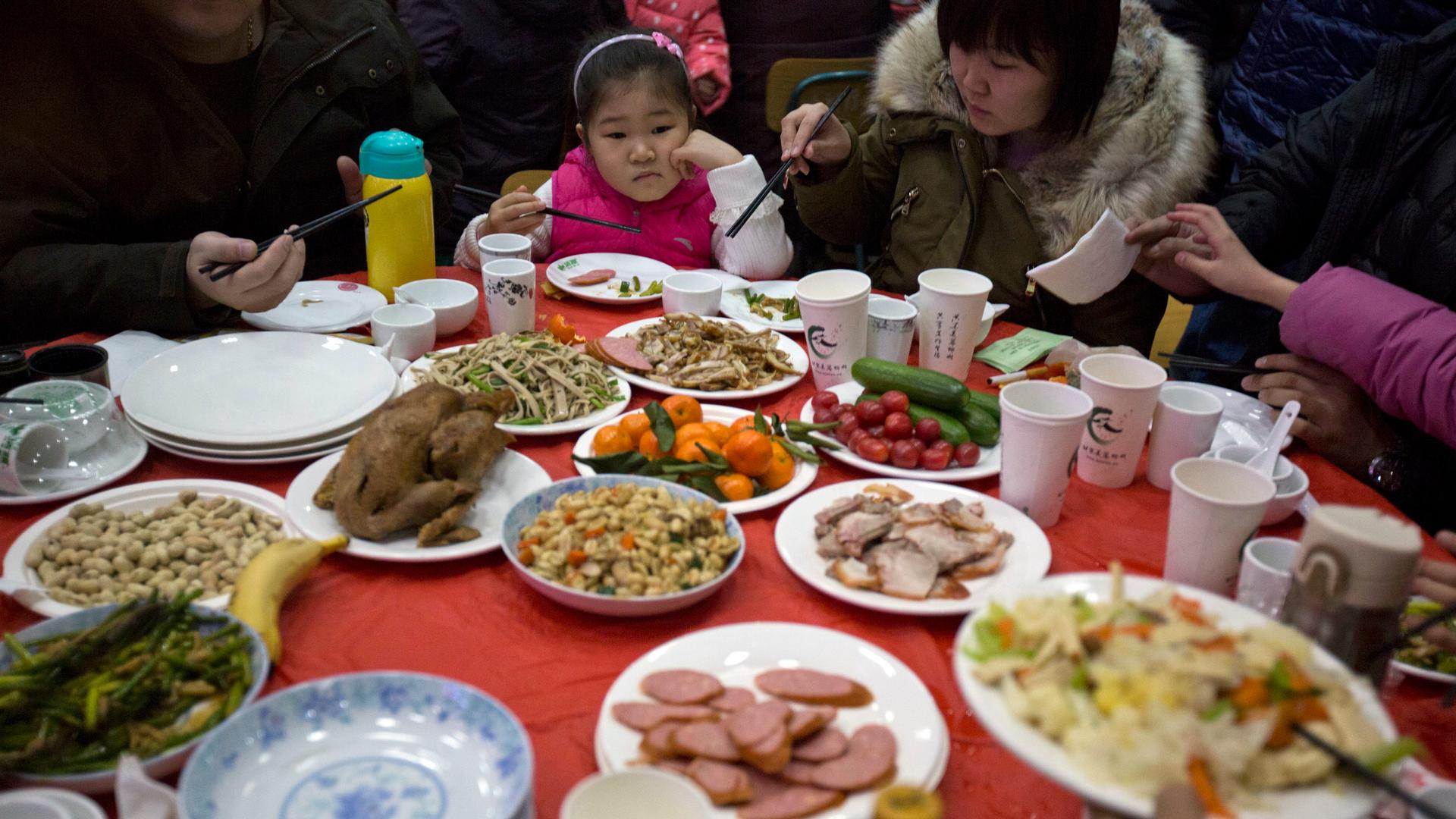Business after the pandemic-induced lockdown is back to normal at a popular hotpot restaurant in Chengdu, China. Groups sit around circular tables dipping meat and vegetables into the bubbling broth.
Owner Lai Sheng Qiang says many of his customers invite friends or business contacts for meals at his restaurant.
“When they’re inviting someone out for dinner, some people feel like they have to over-order to make a good impression,” he says.
And that has led to a longtime problem in China: food waste.
China throws away enough food to feed 30 to 50 million people per year, according to a report from the Chinese Academy of Sciences and the World Wildlife Fund in China. Now, the government is trying to change that bad habit. A directive from President Xi Jinping last month instructed Chinese people to stop wasting their food. It’s called Operation Empty Plate.
The country has changed drastically from the days when people couldn’t get enough to eat and food was rationed. In cities around China, many people eat out regularly with family or business associates. For older generations, Xi’s directive reminds them of the tougher times they lived through, from the Great Famine to the Cultural Revolution. But younger generations who have grown up in the years of China’s growing economy may not have that cultural context.
Xi has tried to tackle the issue of food waste before. Back in 2013, a propaganda campaign reminded people, especially government agencies, to scale back on banquets piled high with food. This year he’s calling on the general public to think more about the issue of food security. The pandemic, mass flooding throughout China, and trade tensions with other countries all highlight the need to protect the country’s food supplies, Xi said.
Related: China announces new ban on single-use plastics
But Xi’s order on food waste did not come with specific instructions, leaving it up to local authorities and individual restaurants to interpret his words on their own. Lai says the local restaurant association dropped by to inform him about Operation Empty Plate but didn’t give him guidelines to follow. So he has to figure out how to comply.
“Every restaurant has their own approach. We’re going to offer our customers two different portion sizes and sharing plates. That way, they can still feel like they have more options and can try more dishes,” he says.
Since family-style sharing is the norm in China, restaurant servers are used to giving advice on how many dishes to order. But in the wake of Xi’s campaign, some restaurants might have gone a bit too far in their attempts at compliance.
A restaurant in Changsha had to apologize after they put scales outside the front door for customers to weigh themselves. One viral video showed a manager eating his customers’ leftovers. Several videos capture teachers eating their students’ leftover food.
Xi’s directive has also put pressure on an extremely niche group: Competitive eaters who are known as “big stomachs.” Their livestream videos show people chowing their way through tables full of food and in one case downing an entire roast lamb in one sitting. They have a huge following in China.
But now, because of Operation Empty Plate, they’ve been essentially banned from broadcasting online. Today, when you search for “big stomach” on Chinese social media like Weibo, Bilibili or Douyin, the first result that pops up is a short video from China State News reminding people not to waste food. Most of the eating videos have been scrubbed, but a few still manage to get online.
One features a young woman wearing a checked gingham blouse and big bow in her hair — very much a girl-next-door look. In the seven-minute video, she polishes off a big plate of udon noodles, a can of peaches, a bowl of black sesame rice dumplings, three dessert rolls and a milk pudding dessert. It’s no wonder the name she posts under is 吃不饱的晴子啊, or “can’t get full.”
Lai Sheng Qiang, the Chengdu restaurant owner, remembers a time when he actually couldn’t get full. He was born in the years after the Great Famine, which killed tens of millions of people in the 1950s.
“It was a different time then. It was a planned economy, and we couldn’t always eat as much as we wanted.”
“It was a different time then,” he says. “It was a planned economy, and we couldn’t always eat as much as we wanted.”
So he thinks the government’s Operation Empty Plate makes sense. He looks at some of his customers’ ordering habits and wishes they weren’t so wasteful. Most of them accept his reminders to order less food — which predated Xi’s directive.
“But some more traditional people, probably those who have been through harder times, think, ‘I have money now.’ Or they think this is a way to show their generosity,” Lai says.
Some people in China don’t see things the way Lai does. They think the new campaign is an attempt to control another aspect of ordinary people’s lives. Some restaurant owners are ignoring it to avoid offending their customers.
But Lai says it’s good for the country to plan ahead and try to prevent food security problems later on.
